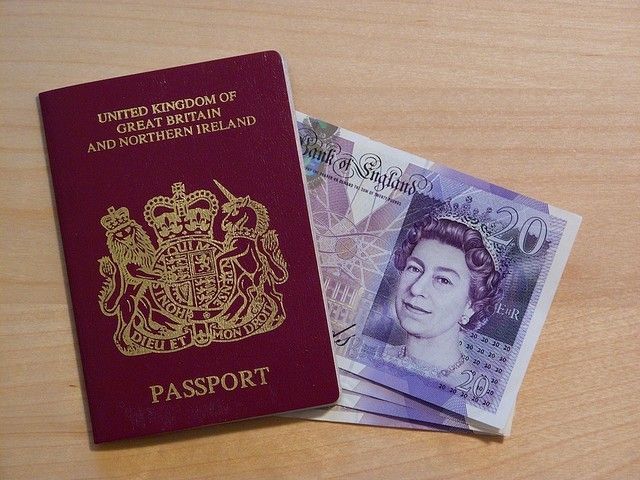
Systemic enforced destitution gets my goat
 Systemic enforced destitution gets my goat!
Systemic enforced destitution gets my goat!
At Commonweal we have a track record of working with partners on projects and new housing solutions to social injustice where the injustice frequently arises from a systemic nonsense; something that when you spell it out just does not make sense to the proverbial person on the top deck of the Clapham Omnibus. It is these catch 22 circular injustices that get us angry and get our goat.
For example, housing allocation or benefit systems that prevent access to family housing for homeless mothers leaving prison who cannot then regain care and custody of her children. Simply because of inadequate housing and because a mother doesn’t have care and custody of her children she remains ineligible for family housing – all this at a time when evidence has shown a key driver for many women avoiding re-offending is having family responsibility.
Unfairness of the asylum system
The latest example to pique our interest at Commonweal is the asylum system which forces destitution as a deliberate part of the system – something we simply do not believe is acceptable. For those who have made asylum applications, many fleeing violence or persecution in their country of origin, if their claim is refused they are allowed to stay temporarily. They may have the ability to appeal the decision or to make a fresh application if new information comes to light. However, whilst here they have no recourse to public funds but more perniciously they are also not able to work to support themselves and they cannot access health services or mainstream accommodation options.
Commonweal is not having a dig at the asylum decision making process – we may not be expert enough to know whether it works or not or is fair. However we are aware of many other organisations and individuals, who are experts in the field, who do have serious doubts and concerns.
No, for us it is not the decision system, it is the fundamental breakdown in humanity and common decency that annoys us. A system that forces people on to the streets – presumably by conscious decision on the part of Ministers to make the idea of staying in this country less attractive – is not acceptable to us.
One solution of course is to ensure that on the day of any negative decision people are escorted there and then to the airport and waved goodbye! Indeed it seems some elements of the current Government would wish to see that. However, common sense has prevailed on the ground to recognise that such a here today gone tomorrow solution is both unworkable in fact and inappropriate in natural justice. In reality, many people are allowed to stay temporarily and most are not kept in detention for any perceived fear of absconding or other risks. Most people in this limbo state of a negative decision but ability to appeal or
re-apply are in the community in an increasingly perilous state.
Charities and benevolent individuals, faith groups and others are often meeting the immediate humanitarian needs for such individuals and families. Addressing the need before them but not always helping people move on either to access support and advice to make a fresh application or appeal or to accept that maybe it is the end of the road in this country and other options need to be considered.
A project to help vulnerable migrants
Commonweal’s latest project, being developed with the leading refugee and migrant support agency Praxis, aims to demonstrate a workable model for providing more of the free housing needed by those with no recourse to public funds and unable to work legally. This project which is being supported by a range of social investors – charitable Trusts and Foundations.
It seeks to cross subsidise this free housing from an income stream derived from providing support and services to others in the system where there is some access to public funds or those who have received a positive decision and who are able to work and pay a rent themselves.
Key for Commonweal is the clarity that this is transitional support – Praxis providing the guidance, signposting and where appropriate direct support to enable individuals to take control of their lives where it is felt that a positive outcome should be possible given appropriate legal or other advice. This is not a project aimed at providing false hope to
those where asylum or positive status in the UK is an unrealistic outcome.
Coming to this as interested lay observers not asylum experts it is becoming increasingly obvious that for the majority of asylum seekers the biggest hindrance is not necessarily having no recourse to public funds – many do not wish to claim benefits or ‘scrounge
off the state’ as such a phrase is frequently used to imply by those with a more general
anti-immigration stance. Time and again evidence indicates that asylum seekers want to be able to work, to work legally to support themselves and their families and to start to contribute to the society they have actively sought to make their home. We are delighted that there is a debate in the Grand Committee of the House of Lords on 26th June looking at the issue of the right to work of asylum applicants awaiting decisions – I hope this discussion is extended to those trapped in this limbo post decision too.
We are excited about our new project and look forward to getting it off the ground later
this year.
Rough Justice report launch: Next month we are launching a short report – Rough Justice: uncovering social policies that create homelessness (#RoughJusticeCH) – highlighting a range of systemic nonsense’s that are creating cruel catch 22 scenarios putting people’s immediate or longer term housing options at risk. We will also be asking what gets your goat as we seek new potential projects where commonweal might be able to help. If you wish to join us at Westminster Central Hall, 3pm, Wed 9July please get in touch office@commonweal.org.uk
Ashley Horsey, CEO
Tagged:

